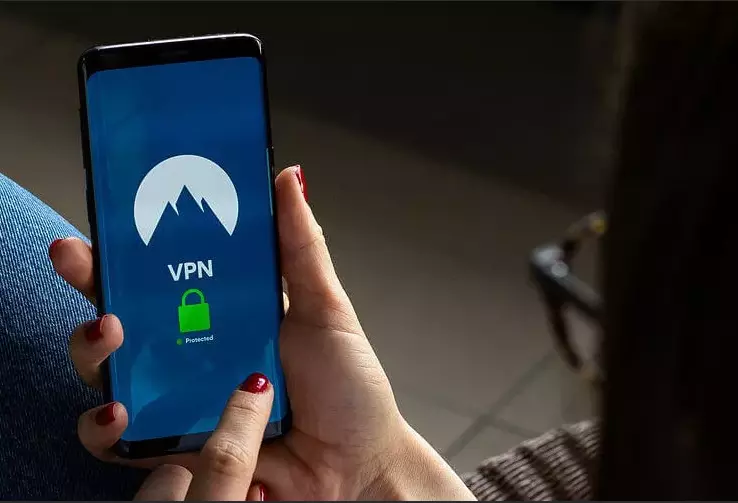
Setting up a VPN for iPhone or iPad manually
There are several ways to use a VPN on iOS. To set up a VPN on iPhone, follow these steps:
To create VPN connections on iPhone or iPad:
- Go to the “Settings” menu.
- Open “General”.
- Scroll down and select VPN.
- Click Add Configuration.
- Switch the connection type to “PPTP”.
- Setting up VPN on iPad in the device menu
- To set up a VPN on an iPad, you need to go to Settings> General> VPN
You will need to enter the following values:
- Description
- Server
- Account
- RSA SecurID
- Password
- Encryption
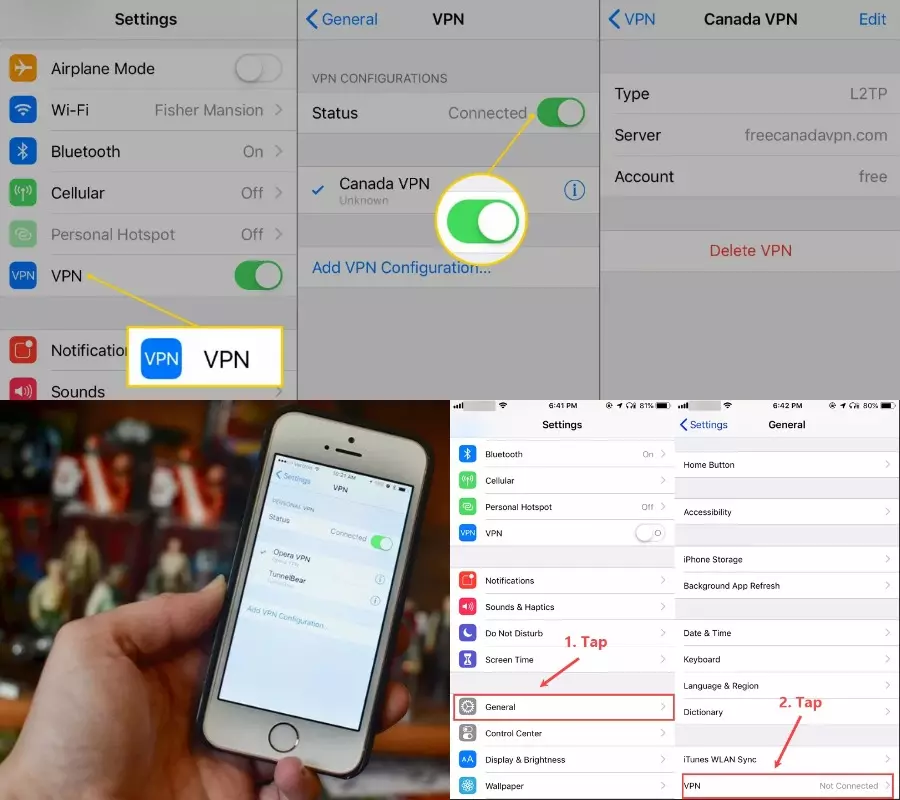
To turn on VPN user should go to the Settings menu
Check the connection for activity (so that a checkmark appears on the left). After the actions are taken, a VPN button will appear in the menu next to the “Cellular Data” icon, so that you can enable and disable VPN. “General”> VPN and from below click on “Remove VPN”.
Best VPNs we recommend
You can also use VPN on iPhone or iPad using one of the third-party apps. Let’s consider the most popular ones in more detail.
ExpressVPN
In terms of horse racing, ExpressVPN is the most popular service. Some VPNs are doing well in certain areas, while others are simply losing the palm. ExpressVPN has taken a clear look at functionality from top to bottom. They offer the most complete service, every item is professionally processed.
For iPhone and iPad users, there is a very useful app to make VPN setup as easy as possible. You can run three devices at the same time with your ExpressVPN account. ExpressVPN’s security and privacy are at the top of the list. The bottom line is that they use ultra-secure protocols and have a no-logging policy, so you can surf the internet freely.
ExpressVPN is incredibly impressive when it comes to speed and location. They have over 2000 servers in over 90 countries and the performance is more than stable whether you are connected from Spain or South Africa. If the app itself isn’t enough, ExpressVPN and its customization go one step further with its support services. Not only do they have a contender for the best customer support in the VPN space, but their support offerings will also make the offerings of many other developer companies seem weak by comparison.
NordVPN
NordVPN is a reputable provider that is present on all major platforms. Besides providing a standard set of features, this Virtual Private Network is incredibly easy to use and acts as a fully automated solution.
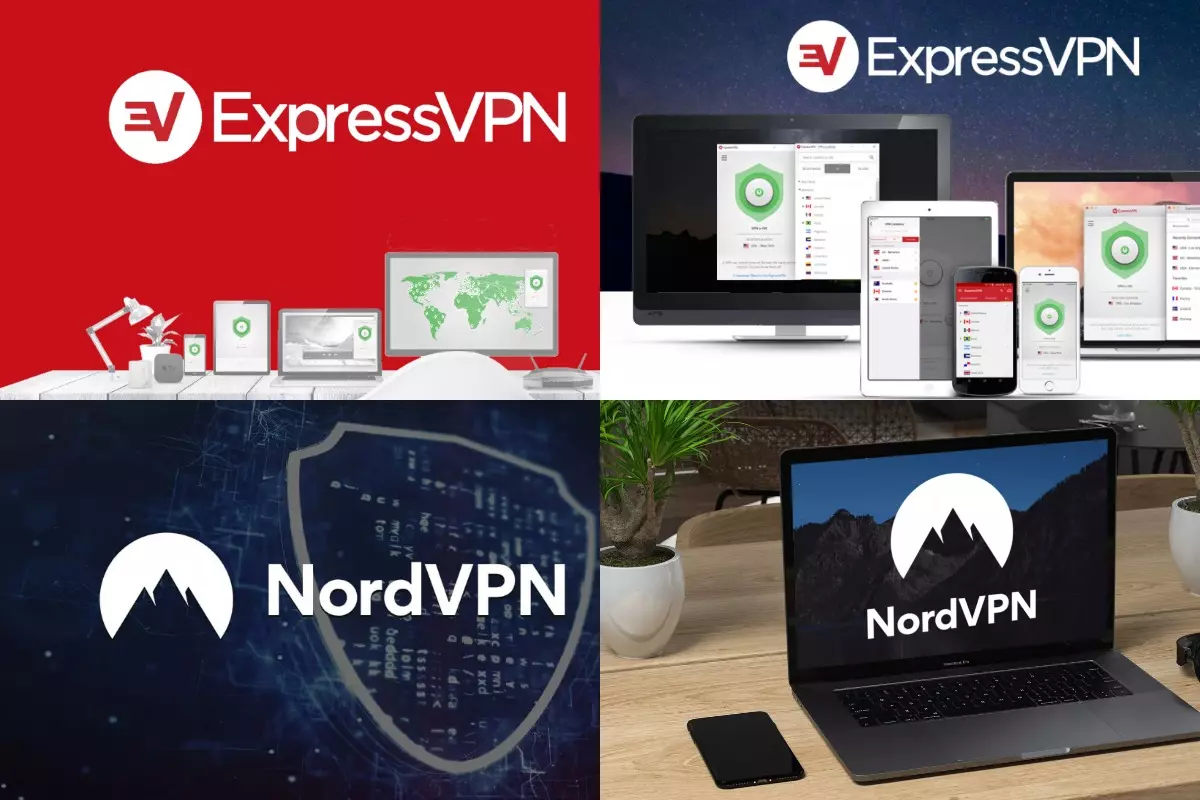
ExpressVPN and NordVPN are considered the best for iPhones
NordVPN has an impressive server list – thousands of servers spread across over 60 countries. Easy access to a wide variety of servers is one thing, but this VPN also offers one of the most affordable apps to get the job done. If you’re new to VPN and worried about being confused, don’t worry, NordVPN does its job just as easily. As for performance, there are faster proposals, but more often than not, analogs do not have all the functions of the program in one solution.
What’s even more impressive is the privacy of the VPN. NordVPN offers an amazing suite of encryption protocols and ensures that its users have everything they need to surf privately. To support this requirement, they also have a zero-logging policy. At first, it seems like ExpressVPN’s service offerings couldn’t get any better, but NordVPN’s 24/7 customer support can be a cut above it. They respond quickly and are very friendly, patient, and knowledgeable. It feels good (especially if you’ve signed up for a long period) to know that they care about their customers.
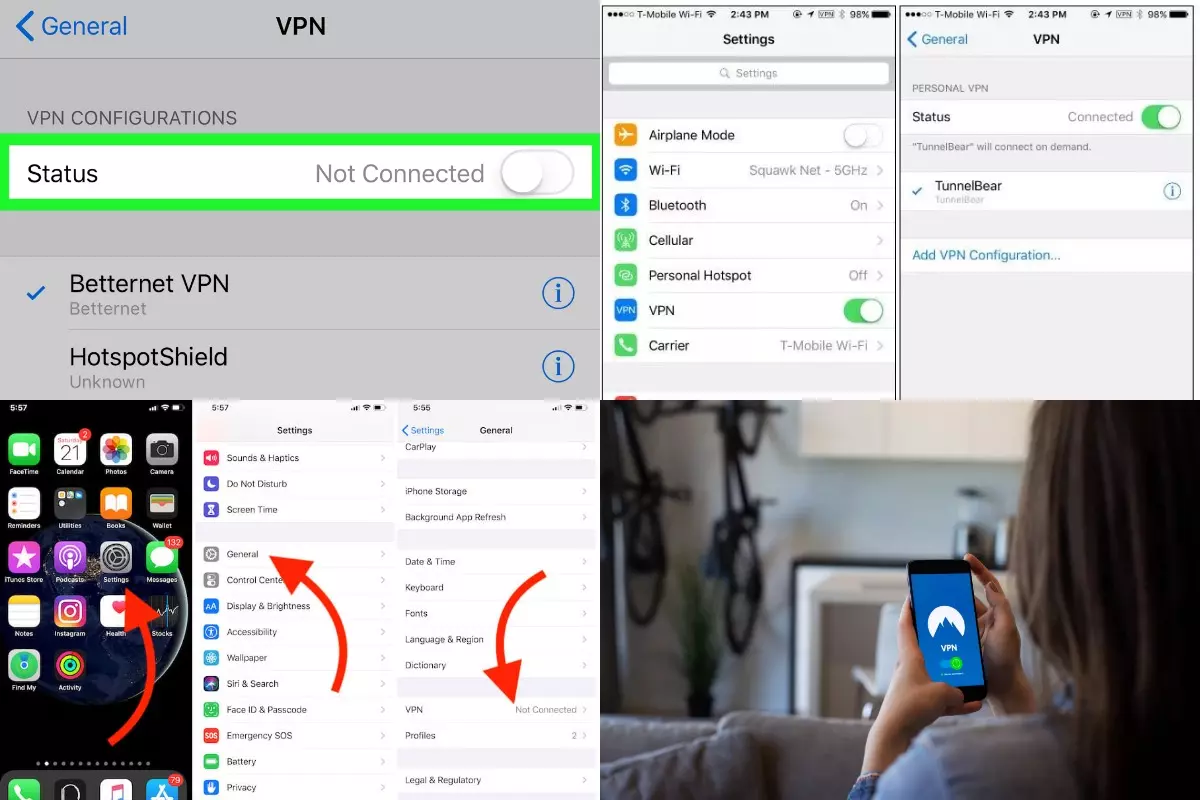
To turn off VPN the user shoulg go to the Settings menu
Troubleshooting VPN Issues on iPhone: Common Challenges and Solutions
While using a VPN on an iPhone can significantly enhance security and privacy, users may encounter occasional challenges. Understanding and troubleshooting these common issues ensures a seamless and effective VPN experience.
One frequent problem is connectivity issues. If the VPN fails to connect or frequently disconnects, users can try switching between different VPN servers, as the issue may stem from server congestion or maintenance. Additionally, ensuring that the VPN app and iOS are updated to the latest versions can resolve compatibility issues.
Some users may face difficulties accessing specific websites or services while the VPN is active. This can be attributed to geolocation restrictions. Changing the VPN server location or utilizing split tunneling to exempt certain apps from the VPN can help bypass these restrictions.
In cases of slow connection speeds, experimenting with different VPN protocols may improve performance. While OpenVPN is known for its security, switching to a faster protocol like IKEv2 might be beneficial, especially in regions with network restrictions.
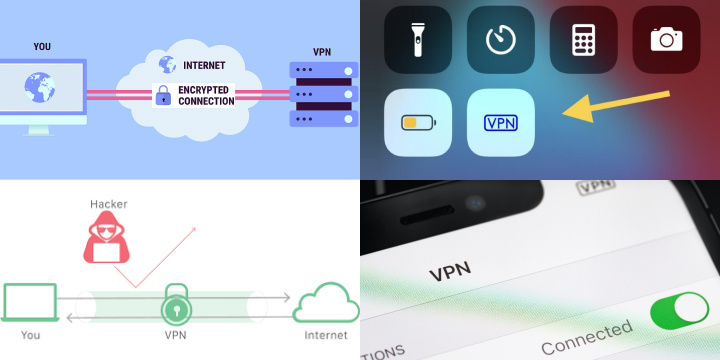
If the VPN app crashes or behaves unexpectedly, reinstalling the application can often resolve these issues. Clearing the app’s cache or adjusting settings related to automatic startup can also contribute to stability.
In conclusion, troubleshooting common VPN challenges on the iPhone involves a combination of adjusting settings, selecting appropriate servers, and keeping software updated. By addressing these issues proactively, users can maximize the benefits of their VPN while ensuring a smooth and secure online experience.
How to turn off VPN
Turning off VPN on iPhone or iPad is as easy as turning it on. To do this, go to the device settings and then to the VPN section. Then just uncheck the box you are using or configured network and you’re done! Now you are not using a VPN. Removing a third-party VPN service from your smartphone will also disable the VPN. Regardless of which provider you choose, rest assured that a good VPN will provide better internet security, privacy, and anonymity than a public Wi-Fi hotspot.







